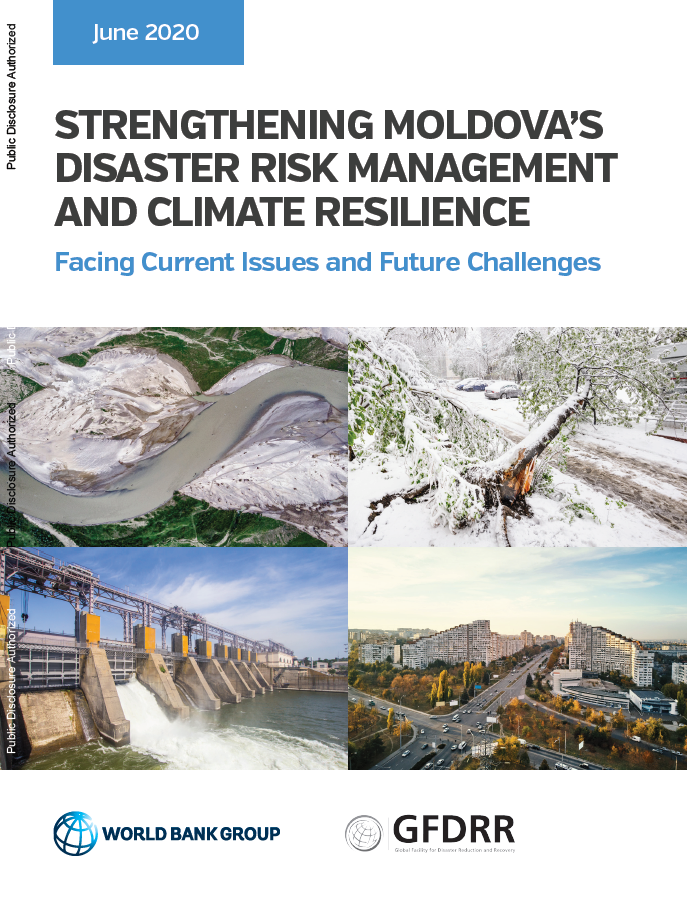Moldova is exposed to an array of natural hazards, and their impact disproportionately affects the poor. The Government of Moldova has been strengthening institutions to better prepare for and respond to disasters. It has improved the ability to forecast severe weather, including at the local level, through improved hydrometeorological services; it has reduced the agricultural sector’s vulnerability to climate change by improving irrigation services, strengthening the existing agriculture insurance scheme, and promoting climate-smart agriculture practices; and - importantly in light of the small size of the country - it has strengthened regional collaboration and knowledge sharing on disaster risk management (DRM). Local capacity is essential because Moldova’s ability to respond to Coronavirus disease (COVID-19), or any other shock or stress, is not just determined by its level of preparedness and readiness to cope with such complex crises, but also by the level of effectiveness of its governance systems (particularly in urban areas), as well as its existing service delivery and infrastructure systems. In this DRM country policy note, chapter one provides an overview of Moldova’s disaster and climate risk profile. Chapter two reviews the current institutional and legal framework for disaster risk management and financing, including measures and policies recently adopted. Chapter three is an assessment of the current DRM situation in Moldova, including ex ante and ex post disaster risk financing and insurance (DRFI) instruments currently in use for budget mobilization, and explores a potential earthquake scenario for Chisinau in more detail. The fourth chapter concludes with a look at potential institutional and financial gaps, including a summary of recommendations and different sets of corrective measures that can be envisaged
Strengthening Moldova’s Disaster Risk Management and Climate Resilience: Facing Current Issues and Future Challenges
June 1, 2020 Read this publication

